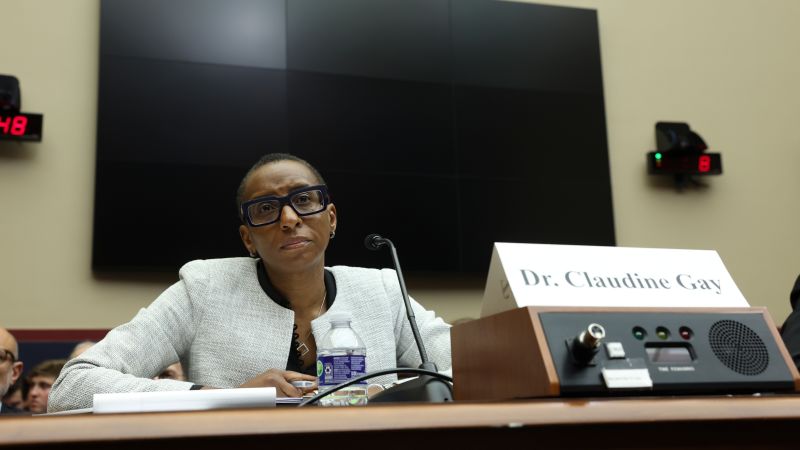Ousted Harvard President Claudine Gay says she faced death threats and was called the N-word during a weeks-long attack on her character designed to end her presidency.
In an op-ed published Wednesday evening by The New York Times, Gay described her decision to resign this week, after plagiarism allegations and criticisms she didn’t do enough to combat antisemitism on campus, as “wrenching but necessary” and expressed a desire to “deny demagogues the opportunity to further weaponize my presidency.”
“My inbox has been flooded with invective, including death threats. I’ve been called the N-word more times than I care to count,” Gay said.
The former Harvard president punched back at her critics, arguing that they have “often trafficked in lies and ad hominem insults, not reasoned argument.”
And Gay, the first Black president in Harvard’s nearly 400-year history, made clear she believes the campaign against her was driven at least in part by the color of her skin.
“They recycled tired racial stereotypes about Black talent and temperament. They pushed a false narrative of indifference and incompetence,” Gay wrote.
Harvard’s top board, which is now facing criticism itself, accepted Gay’s resignation on Tuesday following a firestorm of controversy over her academic writing, disastrous testimony before Congress and handling of issues of antisemitism on campus.
“Yes, I made mistakes,” Gay wrote in the Times. “In my initial response to the atrocities of Oct. 7, I should have stated more forcefully what all people of good conscience know: Hamas is a terrorist organization seeking to eradicate the Jewish state.”
Gay added that at last month’s Congressional hearing she “neglected to clearly articulate that calls for the genocide of Jewish people are abhorrent and unacceptable and that I would use every tool at my disposal to protect students from that kind of hate.”
“I fell into a well-laid trap,” Gay wrote.
That hearing paved the way for the House Committee on Education and the Workplace to launch an investigation into antisemitism at Harvard, MIT and the University of Pennsylvania. Megadonors pulled funding and prominent alumni called for Gay to step down.
For the first time, Gay provided a detailed defense of her academic writings against plagiarism allegations and weighed in on the origins of these attacks on her life’s work.
“My critics found instances in my academic writings where some material duplicated other scholars’ language, without proper attribution. I believe all scholars deserve full and appropriate credit for their work,” the former Harvard president wrote, adding that she “promptly” requested corrections upon learning of these “errors.”
Gay added that she “proudly” stands by her work and noted she “never misrepresented my research findings, nor have I ever claimed credit for the research of others.”
Experts CNN spoke to have found Gay’s work does include multiple instances of plagiarism. However, they differed over how and whether she should be punished. And they stressed matters of plagiarism are complex, with academics rarely getting fired for such misconduct.
“It is not lost on me that I make an ideal canvas for projecting every anxiety about the generational and demographic changes unfolding on American campuses: a Black woman selected to lead a storied institution,” Gay wrote in the Op-Ed.
Gay, who is returning to the Harvard faculty, urged society to exercise more caution during future debates.
“At tense moments, every one of us must be more skeptical than ever of the loudest and most extreme voices in our culture, however well organized or well connected they might be,” Gay wrote. “Too often they are pursuing self-serving agendas that should be met with more questions and less credulity.”
Read the full article here




